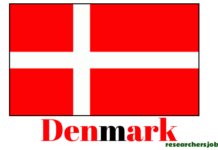PhD Position – Microbiome Modeling: Climate change and evolving land use patterns have substantial impacts on terrestrial ecosystems. Predicting matter and energy flows in these systems is vital for effective management and adaptation strategies. The Institute of Bio- and Geosciences – Agrosphere (IBG-3) is offering a PhD position in Hybrid Soil Microbiome Modeling to address this challenge. The research involves integrating process-based models and machine learning to make real-time predictions in soil systems. Join a dynamic, interdisciplinary team and contribute to the “Digital Agricultural Avatar” project in the DFG-funded Cluster of Excellence PhenoRob.
Study Area: Soil Microbiome Modeling
Scholarship Description
PhD Position – Hybrid Soil Microbiome Modeling
As a PhD candidate, you will develop a hybrid modeling approach for the soil microbiome by combining process-based and machine-learning models. Your work will be closely related to the “Digital Agricultural Avatar” project. Key responsibilities include simulating the soil microbiome, reactive solute transport in soil and rhizosphere, model conditioning, sensitivity analysis using Bayesian frameworks, and implementing machine learning to create surrogate models. You’ll also engage in mentoring students, writing scientific publications, and presenting research findings at conferences.
Eligibility To qualify for this scholarship, you should have:
- A scientific Master’s degree in natural sciences, environmental science, agricultural science, geo science, data science, or related fields.
- Proficiency in matter cycling and biogeochemical processes in ecosystems and agricultural systems.
- Experience in applying process-based models and scientific programming.
- A solid grasp of differential calculus.
- Proficiency in written and spoken English.
- A structured, team-oriented, and proactive working style.
Additionally, you should either have or be driven to acquire:
- Experience in developing process-based models based on ordinary and partial differential equations.
- Theoretical knowledge of Bayesian statistics.
- Experience with model analysis techniques and Bayesian interference for parameter estimation.
- Competencies in bioinformatic analysis methods.
- Familiarity with machine learning.
Required Documents Please submit the following documents as part of your application:
- CV
- Cover letter
How to Apply Apply for this position by using the “Contact” button in the corresponding offer on the BCMaterials’ portal. Ensure you provide your name and email address for further communication.
Last Date The application deadline for this scholarship is 31 October 2023. Don’t miss this opportunity to shape the future of soil microbiome modeling and contribute to critical environmental research. Apply as soon as possible as the position will be filled once a suitable candidate is found.









